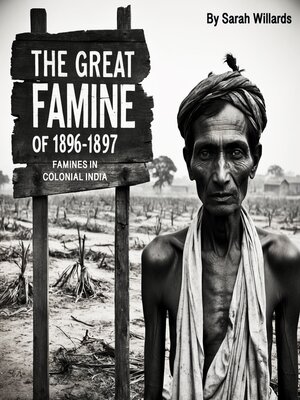
Sign up to save your library
With an OverDrive account, you can save your favorite libraries for at-a-glance information about availability. Find out more about OverDrive accounts.
Find this title in Libby, the library reading app by OverDrive.



Search for a digital library with this title
Title found at these libraries:
| Library Name | Distance |
|---|---|
| Loading... |
The Great Famine of 1896-1897 was one of the most devastating periods of hunger and suffering in colonial India. Spanning across large regions, particularly in the Deccan Plateau, this famine marked a tragic chapter in the history of British colonial rule. It resulted in the death of hundreds of thousands of people, although the exact number remains disputed due to the limited data available from that era.
This famine was not an isolated event but part of a larger pattern of food scarcity issues that India faced under British colonial governance. However, the 1896-1897 famine stood out due to the scale of its impact, the widespread malnutrition it caused, and the delayed and ineffective relief efforts by the British authorities. The failure to provide adequate assistance and the harsh economic policies implemented during this period are considered by many as contributing factors to the famine's severity.
The environmental conditions in India played a significant role in the famine. A series of poor monsoons coupled with crop failures resulted in a severe food shortage. However, the effects of the famine were compounded by British policies that prioritized export of food grains from India to feed the empire's industrial needs. This practice exacerbated food scarcity in the affected regions, leaving local populations without the resources they needed to survive.







